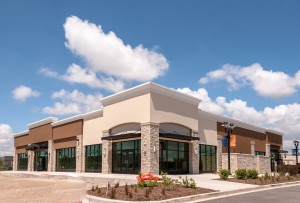There may be situations where commercial property owners can eliminate the traditional landlord-tenant relationship by using license agreements instead of leases.
can eliminate the traditional landlord-tenant relationship by using license agreements instead of leases.
Generally, a lease conveys exclusive possession of specific property in exchange for payment of rent, and vests a property interest in the tenant during the term of the lease.
A license merely permits certain acts on the property of another and is revocable at the will of the licensor. Licensors may generally use “self-help” to remove a defaulting licensee from the licensed premises, without having to tie up the real estate in litigation (as required to evict a tenant).
In Illinois, the Illinois Supreme Court discussed, at length, the difference between a lease and a license in Millennium Park Joint Venture, LLC v. Houlihan, 241 Ill.2d 281 (2010). First, the court emphasized that “the principal difference between a lease and a license is that a lease confers the right to exclusively possess and control property, whereas a license merely confers the right to use property for a specific purpose, subject to the licensor’s control.” It is the degree of possession and control that determines whether a contract is a lease or a license. Furthermore, the court identified the following elements of a lease: (1) the extent and bounds of the property; (2) the term of the lease; (3) the amount of rent; and (4) the time and manner of repayment. The court noted that if any of these elements are missing, a lease has not been created. Moreover, “the fact that an agreement may contain all of these essential requirements for a lease does not necessarily make it a lease.”
Additionally, the Illinois Supreme Court reasoned, “licenses are ordinarily revocable at the will of the grantor and are generally not assignable.” But once again the Court drew attention back to the crucial distinguishing characteristic of a lease: “the surrender of possession and control of the property to a tenant for the agreed upon term.”
Applying these principles, the Court held that the agreement in that case created a license rather than a lease. Initially, the Court took notice of the fact that the agreement did not give the plaintiff “exclusive possession and control, but rather the right to use areas in the ‘concession area’ and ‘the premises.’” Furthermore, “while commercial leases routinely restrict the type of business the lessee may operate, the agreement here went much further.” It controlled many of the plaintiff’s day-to-day operations, including uniforms, signs, trash placement and pickup, hours of operation, mandatory products, etc. Thus, the park district maintained significant control over the plaintiff’s operation.
Potential licensees are likely to be wary of entering into an agreement that is revocable at licensor’s will, and would not be likely to invest in the build-out of spaces without some financing incentives from licensor. As a result, license agreements are used primarily for short-term users of office space, storage space and small retail space, such as mall kiosks.
However, in certain situations, entering into a license agreement instead of a lease may allow a commercial property owner to avoid the time and expense of prolonged litigation and to expeditiously regain use of the space in the event of licensee default.
This document is intended for informational purposes only and is not legal advice or a substitute for consultation with a licensed legal professional in a particular case or circumstance.
 Wendy M. Reutebuch | Real Estate, Real Estate Finance and Creditors’ Rights
Wendy M. Reutebuch | Real Estate, Real Estate Finance and Creditors’ Rights
Wendy represents clients in both Illinois and Wisconsin in a wide variety of commercial real estate and real estate finance transactions. In addition to handling acquisitions, dispositions and leases, Wendy also advises lenders on loan transactions, loan workouts, loan restructurings, forbearance and pre-foreclosure matters. If you need assistance with a related matter, contact Wendy.

